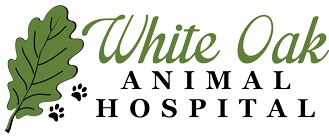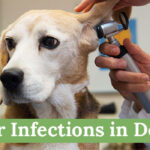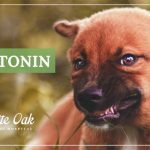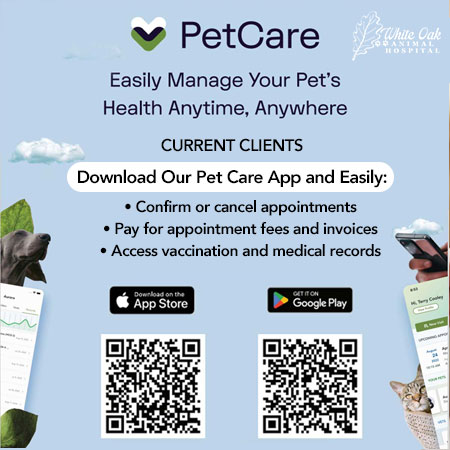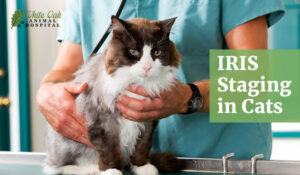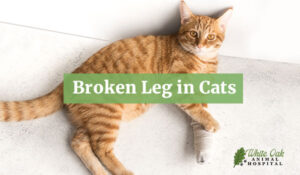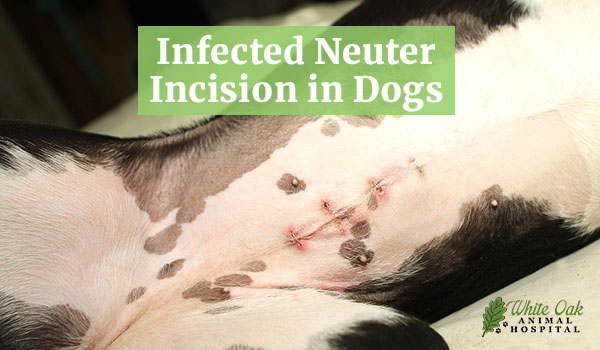
Neutering is a routine surgical procedure that plays a crucial role in the health and well-being of dogs. This procedure helps prevent overpopulation and reduces the risk of certain health issues, such as prostate disease and certain cancers. However, despite its many benefits, there is a potential risk of complications, including an infected neuter incision in dogs. Understanding these risks and how to address them is vital for every responsible pet owner.
An infected neuter incision in dogs can occur when bacteria enter the surgical site, leading to inflammation, pain, and other serious health issues. The risk of an infected neuter incision in dogs increases if proper post-operative care is not followed, making it essential to be vigilant during the healing process. Early detection and timely intervention are key to preventing the infection from worsening and ensuring a smooth recovery.
This article focuses on the healing and prevention of an infected neuter incision in dogs. By following expert tips and maintaining a proactive approach, you can significantly reduce the risk of infection and support your dog’s recovery process.
What Causes an Infected Neuter Incision in Dogs?
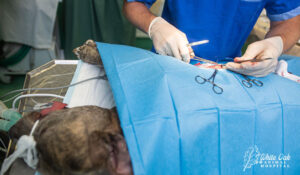 An infected neuter incision in dogs is typically caused by bacteria entering the surgical site, which can happen due to various factors. Poor hygiene is one of the leading causes of an infected neuter incision in dogs. If the incision site is not kept clean, bacteria from the environment can easily infiltrate the wound, leading to infection.
An infected neuter incision in dogs is typically caused by bacteria entering the surgical site, which can happen due to various factors. Poor hygiene is one of the leading causes of an infected neuter incision in dogs. If the incision site is not kept clean, bacteria from the environment can easily infiltrate the wound, leading to infection.
Another common cause of an infected neuter incision in dogs is premature activity. Dogs are naturally active animals, and after surgery, it’s crucial to limit their movement to prevent strain on the incision. Excessive movement can cause the wound to reopen or become irritated, creating an ideal environment for bacteria to thrive and resulting in an infected neuter incision in dogs.
The immune system also plays a significant role in the healing process. If a dog’s immune system is compromised, whether due to age, underlying health conditions, or stress, the risk of developing an infected neuter incision increases. Understanding these causes is essential for effective prevention and treatment of an infected neuter incision in dogs.
Recognizing the Signs of an Infected Neuter Incision in Dogs
Recognizing the early signs of an infected neuter incision in dogs is crucial for prompt treatment and successful recovery. The most common symptoms of an infected neuter incision in dogs include swelling, redness, and discharge from the surgical site. If you notice these signs, it’s important to take immediate action to prevent the infection from worsening.
In addition to these physical symptoms, an infected neuter incision in dogs may also cause behavioral changes. For instance, your dog might become lethargic, lose its appetite, or show signs of discomfort when sitting or lying down. These changes can indicate that the infection is causing systemic issues, which require urgent attention.
Early detection of an infected neuter incision in dogs is vital for successful treatment. The sooner you identify the signs, the more effectively you can address the infection and prevent further complications. If left untreated, an infected neuter incision in dogs can lead to more serious health issues, including abscesses or even sepsis, which can be life-threatening.
Expert Tips on Healing an Infected Neuter Incision in Dogs
Maintaining Proper Hygiene and Wound Care
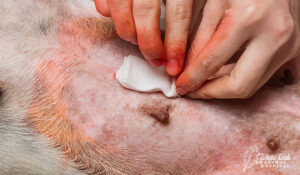 Maintaining proper hygiene is the most important step in preventing and treating an infected neuter incision in dogs. Keeping the incision site clean reduces the risk of bacteria entering the wound, which is crucial for healing. To clean the incision site, gently wipe the area with a sterile saline solution or an antiseptic recommended by your veterinarian. This will help prevent an infected neuter incision in dogs by eliminating potential pathogens.
Maintaining proper hygiene is the most important step in preventing and treating an infected neuter incision in dogs. Keeping the incision site clean reduces the risk of bacteria entering the wound, which is crucial for healing. To clean the incision site, gently wipe the area with a sterile saline solution or an antiseptic recommended by your veterinarian. This will help prevent an infected neuter incision in dogs by eliminating potential pathogens.
Use clean, soft materials like gauze or cotton balls to avoid irritating the wound. It’s also important to ensure your dog’s bedding and living area are kept clean to reduce exposure to dirt and bacteria, which can contribute to an infected neuter incision in dogs. Consistent hygiene practices are key to minimizing the risk of infection and promoting faster healing.
Monitoring and Managing Your Dog’s Activity Levels
Monitoring and managing your dog’s activity levels is critical in preventing an infected neuter incision in dogs. After surgery, it’s essential to limit your dog’s movement to prevent strain on the incision site. Too much activity can cause the wound to open or become inflamed, increasing the risk of an infected neuter incision in dogs.
To keep your dog calm and prevent overexertion, consider using a crate or a confined space where they can rest comfortably. Short, controlled walks on a leash are usually sufficient during the recovery period. Avoid letting your dog jump, run, or engage in rough play, as these activities can exacerbate the risk of an infected neuter incision in dogs.
Using Natural Remedies and Supplements for Enhanced Healing
 In addition to conventional care, natural remedies and supplements can support the healing process and reduce the risk of an infected neuter incision in dogs. Natural remedies such as manuka honey have antibacterial properties that can help protect the incision site from infection in certain cases. Applying a thin layer of medical-grade honey to the incision can create a barrier against bacteria and promote healing, reducing the chances of developing an infected neuter incision in dogs. Please check with your veterinarian to see if your dog is a good candidate to try this.
In addition to conventional care, natural remedies and supplements can support the healing process and reduce the risk of an infected neuter incision in dogs. Natural remedies such as manuka honey have antibacterial properties that can help protect the incision site from infection in certain cases. Applying a thin layer of medical-grade honey to the incision can create a barrier against bacteria and promote healing, reducing the chances of developing an infected neuter incision in dogs. Please check with your veterinarian to see if your dog is a good candidate to try this.
Prevention: How to Avoid an Infected Neuter Incision in Dogs
Preventing an infected neuter incision in dogs starts before the surgery even takes place. Choosing the right veterinarian and understanding the procedure can significantly reduce the risk of complications. Ensure your dog is in good health before surgery, as a strong immune system will aid in healing and decrease the likelihood of an infected neuter incision in dogs.
Post-surgery, following best practices is essential for preventing infection. Keep the incision site clean and dry, and follow your veterinarian’s instructions on wound care. Avoid bathing your dog until the incision has fully healed, as moisture can contribute to an infected neuter incision in dogs. Regularly check the incision site for any signs of infection, such as redness, swelling, or discharge.
Follow-up visits with your veterinarian are crucial for monitoring your dog’s recovery and catching any potential issues early. Your vet can assess the healing process and guide you on preventing an infected neuter incision in dogs. Consistent care and attention during the recovery period are key to avoiding complications and ensuring a smooth healing process.
When to Seek Veterinary Help: Recognizing Severe Cases of Infected Neuter Incision in Dogs
While home care is often sufficient for managing a neuter incision, there are times when professional veterinary help is necessary, especially in severe cases of an infected neuter incision in dogs. If you notice any signs of systemic infection, such as fever, spreading redness, or significant swelling, it’s important to seek immediate veterinary attention. These symptoms indicate that the infection may be worsening and could pose a serious threat to your dog’s health.
During a veterinary visit for an infected neuter incision in dogs, your vet will likely conduct a thorough examination of the incision site and may perform tests to determine the extent of the infection. Treatment options can include antibiotics to combat the infection or surgical intervention to clean the wound and remove any infected tissue. Early intervention is crucial to prevent further complications and ensure a full recovery.
Understanding the signs that require veterinary attention and acting promptly can make a significant difference in the outcome of an infected neuter incision in dogs. Don’t hesitate to consult your vet if you have any concerns about your dog’s healing process.
Ongoing vigilance is key to ensuring that your dog recovers fully. Regularly check the incision site, follow your veterinarian’s advice, and don’t hesitate to seek professional help if you notice any concerning symptoms. With careful attention and appropriate care, you can help your dog heal quickly and comfortably from an infected neuter incision.
 For pet owners seeking the highest level of care, White Oak Animal Hospital is an excellent choice. With over 28 years of experience, White Oak Animal Hospital offers a range of integrative options that are not available elsewhere. Their unique approach includes Traditional Chinese Veterinary Medicine (TCVM) Telemedicine consultations, providing advanced and holistic care that can complement conventional treatments. Whether you need routine post-operative care or specialized support, White Oak Animal Hospital’s experienced team is dedicated to ensuring your pet’s swift and smooth recovery. We encourage you to consider White Oak Animal Hospital for all your pet’s healthcare needs, where you can trust in their expertise and commitment to your pet’s well-being.
For pet owners seeking the highest level of care, White Oak Animal Hospital is an excellent choice. With over 28 years of experience, White Oak Animal Hospital offers a range of integrative options that are not available elsewhere. Their unique approach includes Traditional Chinese Veterinary Medicine (TCVM) Telemedicine consultations, providing advanced and holistic care that can complement conventional treatments. Whether you need routine post-operative care or specialized support, White Oak Animal Hospital’s experienced team is dedicated to ensuring your pet’s swift and smooth recovery. We encourage you to consider White Oak Animal Hospital for all your pet’s healthcare needs, where you can trust in their expertise and commitment to your pet’s well-being.
Frequently Asked Questions
How long does it take for a neuter incision to heal?
The typical healing time for a neuter incision in dogs is about 10 to 14 days. However, this can vary depending on factors such as your dog’s age, overall health, and how well the incision is cared for. During this period, it’s important to monitor the incision site closely to prevent an infected neuter incision in dogs.
What should I do if my dog licks the neuter incision?
Licking the incision can introduce bacteria and increase the risk of infection. To prevent your dog from licking the neuter incision, consider using an e-collar (also known as a “cone of shame”) or a recovery suit. If your dog has already started licking the incision, clean the area with a sterile solution and monitor for signs of an infected neuter incision in dogs.
Can an infected neuter incision in dogs heal without antibiotics?
In some cases, a mild infection might heal without antibiotics if proper care is taken. However, most infections require antibiotic treatment to prevent the spread of bacteria and ensure complete healing. It’s essential to consult your veterinarian to determine the best course of action for an infected neuter incision in dogs.
Related Posts
-
How Do Dogs Get Ear Infections: Spotting 5 Common Causes and Prevention Tips You Should Know
How do dogs get ear infections? Understanding this is crucial to preventing and treating this…
-
How Melatonin for Dogs Promotes Relaxation
Just like people, dogs experience stress for a number of reasons. Some dogs feel nervous…
-
Benefits of Spirulina Supplements For Dogs
s Will spirulina supplements benefit your dog? Well, just like people, sometimes pets experience dips…
-
Why Herbal Treatment May Benefit Hypothyroidism In Dogs
Do you have personal experience with hypothyroidism in dogs? If a veterinarian has diagnosed your…
